Supporting custodians of biodiversity and food
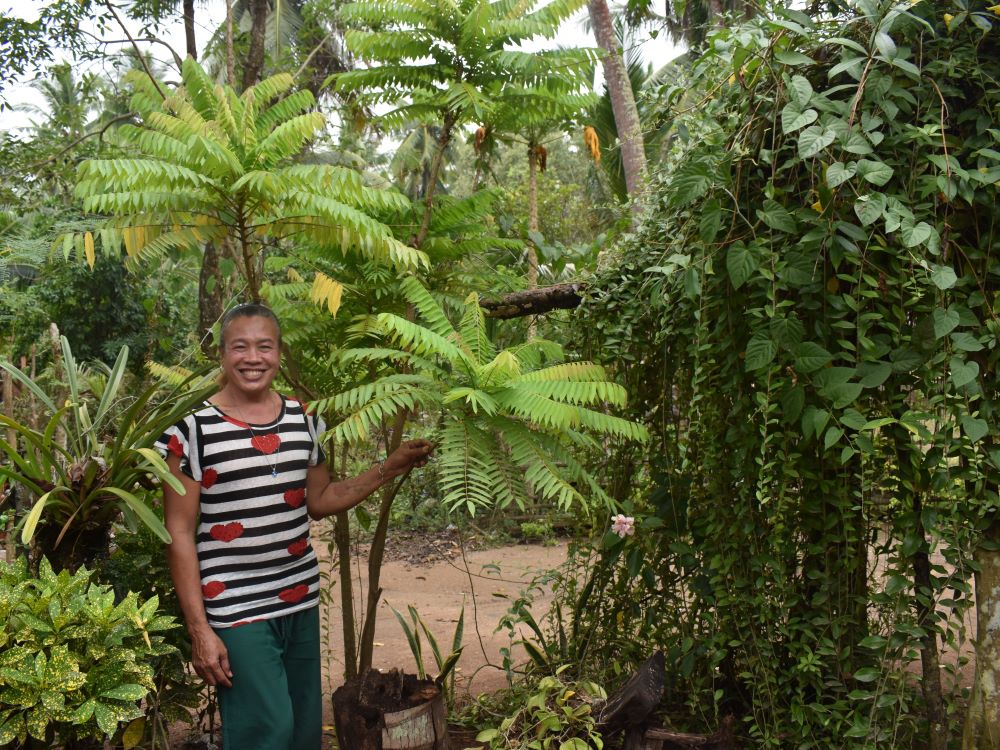
Eduardo Flores (Capuluan Central). Credit - Acer Araña.
Supporting custodians of biodiversity and food culture in coastal areas of the Philippines
The role that individual households play in agrobiodiversity conservation in coastal areas deserves more attention because their role as conservationists ensures better household nutrition and food supply, both to humans and small livestock. A Darwin Initiative supported project, ‘Improving coastal resilience and ecosystem services through biodiversity restoration,’ is already encouraging and supporting households in diversifying their home gardens and homesteads through crop introduction and engaging them in understanding the value of using native species of livestock in a sustainable manner.
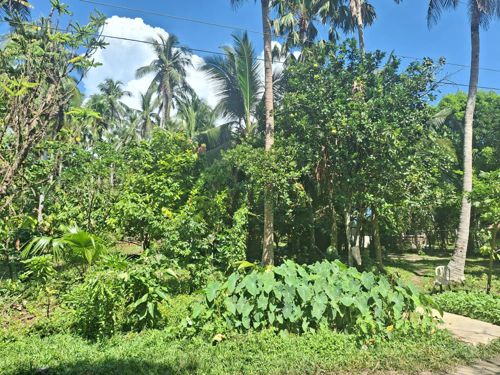
A useful mechanism to enrich local biodiversity, is through the distribution of diversity kits to home gardens. Seed diversity kits of climate-hardy, resilient, nutrient-dense indigenous vegetables (both inter- and intra-species diversity) were distributed to coastal home gardens. This year, 97 households in 10 barangays (villages) received these kits, each containing over 40 different species/ cultivars. This approach nurtures experimentation and observation by the home gardeners. Similar efforts were undertaken with fruit trees, with over 200 households receiving four to six types of fruit trees that tolerate coastal conditions.
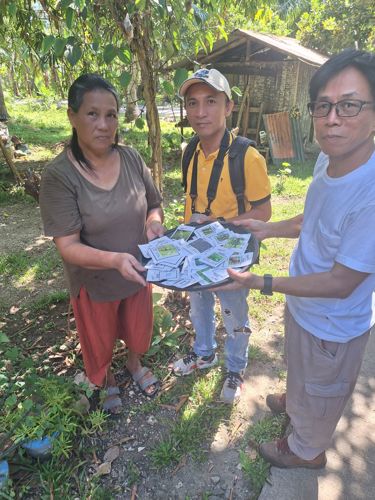
Small livestock programmes that centre around women and the poor can also help conserve vanishing breeds while delivering cheap sources of animal protein. The result is strengthened local food systems that can be scaled and sustained as a result of using low-cost approaches, allowing horizontal scaling from household to household. In line with this premise, small numbers of native, small livestock are being introduced to clusters of households in each of the project’s target villages. Coastal households, women, and youth will serve as custodians – a decentralised source of these vanishing animal genetic resources.
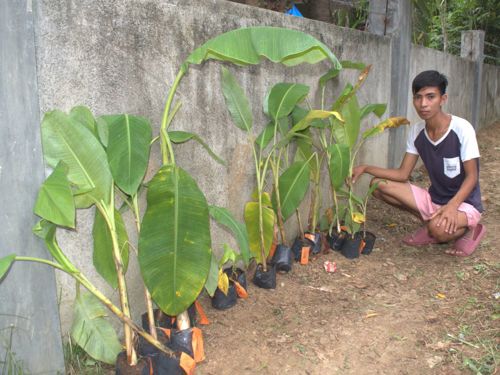
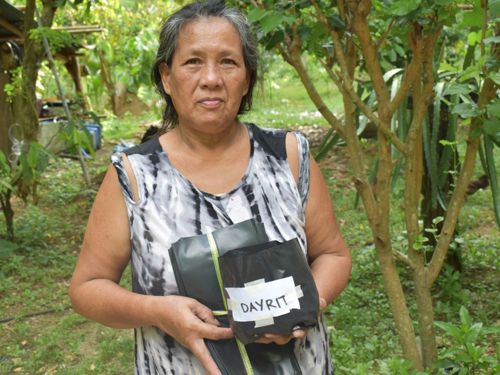
During these efforts to introduce diversity, field workers noted that there were already individuals conserving fruits and vegetables, while the re-introduction of small animal species is starting to re-populate the gene pools of coastal villages. The project decided to recognise and reward these individuals by naming them as biodiversity custodians. As many as 84 individuals (mostly women) in 10 barangays were named custodians. In the future, these individuals will be encouraged to develop plant nurseries to further promote diversity and play bigger roles in local economies and food systems. Some of these custodians were provided with banana diversity collections (including 10 varieties), sourced from the Institute of Plant Breeding and the University of the Philippines in Los Banos.
These households and barangays serve as field gene banks for climate hardy and nutritionally relevant crops and livestock that we are going to have to rely on given the onset of climate change.
As part of our project’s capacity-building efforts, we have produced three resource books which are open-access and available via the following links:
- Conserving Agro Biodiversity: Useful concepts and practices for coastal areas
- Achieving Nutrition, livelihood and ecosystem conservation objectives in coastal areas
- Fostering Participation and socially inclusive approaches among coastal communities

Written by Julian Gonsalves, Darwin Raymundo, Carlo Palima, Rico Locaba, Acer Araña, Ruel Jordan, and Jonalyn Laco. For more information on this Darwin Initiative Main project 28-021, led by the International Institute of Rural Reconstruction (IIRR), please click here.
 Back
Back